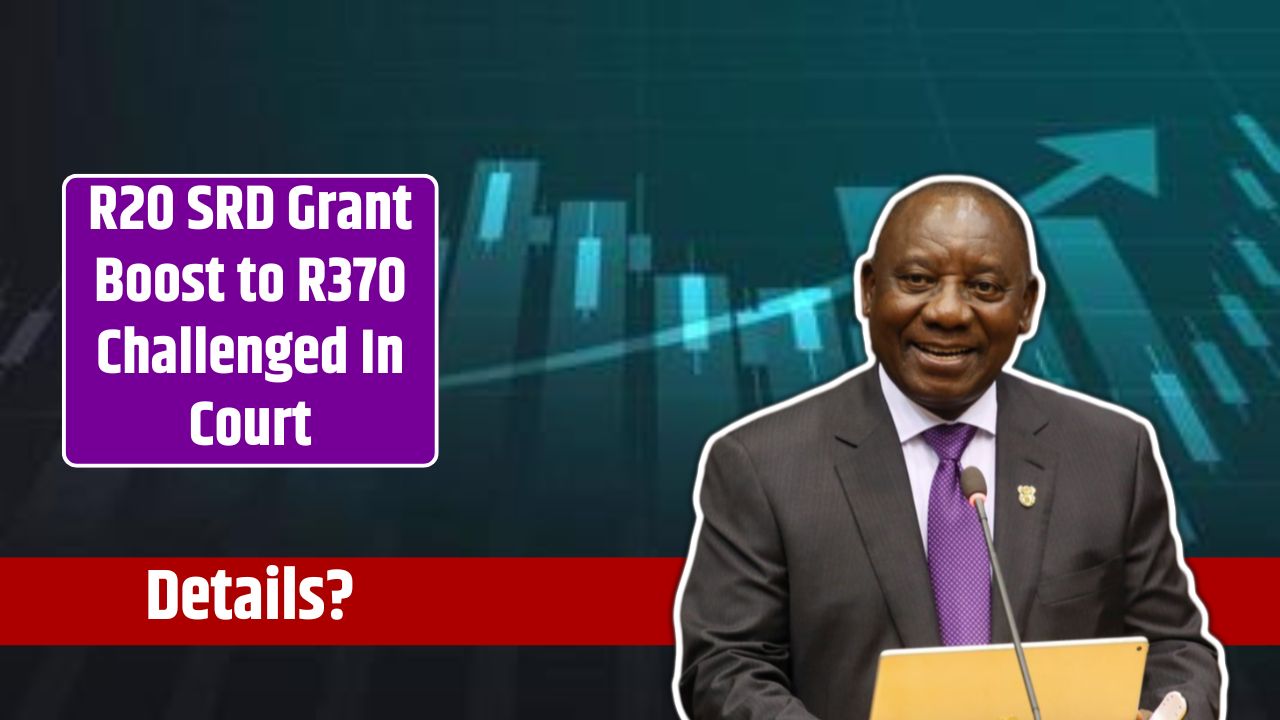The South African Social Relief of Distress (SRD) grant has been a lifeline for millions of unemployed and low-income citizens. Recently, the government announced a R20 increase, raising the grant from R350 to R370 per month.
However, advocacy groups argue that this increase is insufficient to meet basic living costs and have taken legal action.
As the Pretoria High Court deliberates on the matter, the outcome could shape the future of social welfare policies in South Africa.
In this article, we’ll explore the key arguments behind the legal challenge, the financial realities faced by grant recipients, and what this case means for the future of social assistance.
SRD Grant
What Is the SRD Grant?
The Social Relief of Distress (SRD) grant was introduced in 2020 as a temporary relief measure for unemployed South Africans during the COVID-19 pandemic. It has since been extended multiple times due to persistent economic hardship.
- Current grant amount: Increased from R350 to R370 in April 2024.
- Eligibility: Applicants must earn below R624 per month and apply online through SASSA.
- Purpose: To provide financial aid for basic needs like food, utilities, and transport.
Despite its importance, many argue that R370 is not enough to cover even the most essential expenses, leading to the legal challenge currently underway.
Why Is the R20 Increase Being Challenged?
The Reality of Rising Costs
The cost of living in South Africa has surged, with inflation at 7% in early 2024. Prices for essential goods such as food, electricity, and transport have outpaced the R20 increase, making it nearly meaningless for many beneficiaries.
Comparison of Monthly Expenses vs. SRD Grant
| Expense Category | Average Monthly Cost (2024) |
|---|---|
| Basic Food Items | R1,335 |
| Electricity & Water | R200 |
| Transportation | R150 |
| Toiletries | R70 |
| Total Basic Costs | R1,755 |
| Current SRD Grant | R370 |
Even with the increase, recipients receive only 21% of what they need to meet basic survival expenses.
Legal Challenge by Advocacy Groups
In October 2024, The Institute for Economic Justice (IEJ) and #PayTheGrants filed a lawsuit against the government, challenging the constitutionality of the R370 SRD grant.
Key Arguments by Advocacy Groups
- Failure to Meet Basic Needs – The R20 increase does not match inflation, leaving recipients in severe financial distress.
- Violation of Constitutional Rights – South Africa’s Constitution guarantees social assistance for those in need. Advocacy groups argue that the SRD grant is too low to fulfill this obligation.
- Barriers to Access – The online-only application process excludes many poor individuals who lack internet access or digital literacy.
Advocacy groups are calling for a minimum grant amount of R624 per month, which aligns with the food poverty line—the minimum amount needed to prevent starvation.
Government’s Position on the SRD Grant Increase
The National Treasury and Department of Social Development argue that:
- Raising the SRD grant further would strain the national budget, which already supports millions through social grants.
- South Africa spends R2.5 billion per month on social grants, and further increases could jeopardize spending on healthcare, education, and infrastructure.
- The government is focusing on job creation programs to reduce long-term reliance on grants.
While acknowledging the financial struggles of beneficiaries, officials insist that the R20 increase is the most that can be afforded without creating an unsustainable financial burden.
Alternative Solutions Proposed by Advocacy Groups
To address the financial struggles of low-income South Africans, advocacy groups have proposed several solutions:
- Increase the SRD Grant to R624 – Aligning the grant with the food poverty line to ensure recipients can afford basic nutrition.
- Expand Eligibility Criteria – Many unemployed South Africans earning slightly above the threshold still struggle financially. Broadening eligibility could help more people.
- Hybrid Application System – Allowing in-person applications to include those without internet access.
- Job Creation Programs – Expanding government-led employment initiatives to reduce reliance on social grants.
Economic Impact of Increasing the SRD Grant
Would a higher SRD grant help or hurt South Africa’s economy? Experts remain divided.
Potential Benefits:
- More money for recipients would boost consumer spending and stimulate local businesses.
- Improved nutrition and living conditions would reduce healthcare costs over time.
- A higher grant could reduce crime and social instability caused by extreme poverty.
Potential Risks:
- A higher social grant budget could lead to higher taxes or government borrowing.
- If not managed properly, increased spending on grants could reduce funding for education and healthcare.
- Could create dependency on government aid rather than encouraging employment.
What Happens Next?
The Pretoria High Court is expected to rule on the case in late 2024 or early 2025. Depending on the outcome, several scenarios are possible:
- The Court Orders an Increase – If the court finds that the SRD grant violates constitutional rights, the government may be forced to raise it.
- The Grant Remains at R370 – If the court rules in favor of the government, the grant will stay unchanged.
- Compromise Solution – The government could introduce incremental increases or revise eligibility requirements.
Voices from SRD Beneficiaries
For those relying on the SRD grant, the R20 increase has made little difference. Many recipients express frustration and hopelessness.
“R20 doesn’t even cover a loaf of bread for the whole month. How can we survive?” – Sipho, 35, unemployed
“I can’t afford food, transport, or rent. This grant isn’t enough.” – Maria, 42, single mother
These testimonials highlight the urgent need for a sustainable solution to address poverty in South Africa.
The R370 SRD grant increase has sparked heated debate over the balance between social welfare and economic sustainability. The court’s decision will be a crucial moment for millions of South Africans who rely on this grant to survive.
Regardless of the outcome, this case highlights ongoing struggles in South Africa’s social support system and the urgent need for long-term solutions that go beyond temporary grants.










